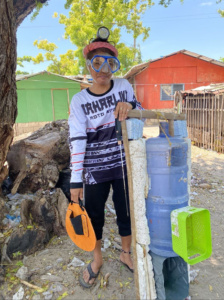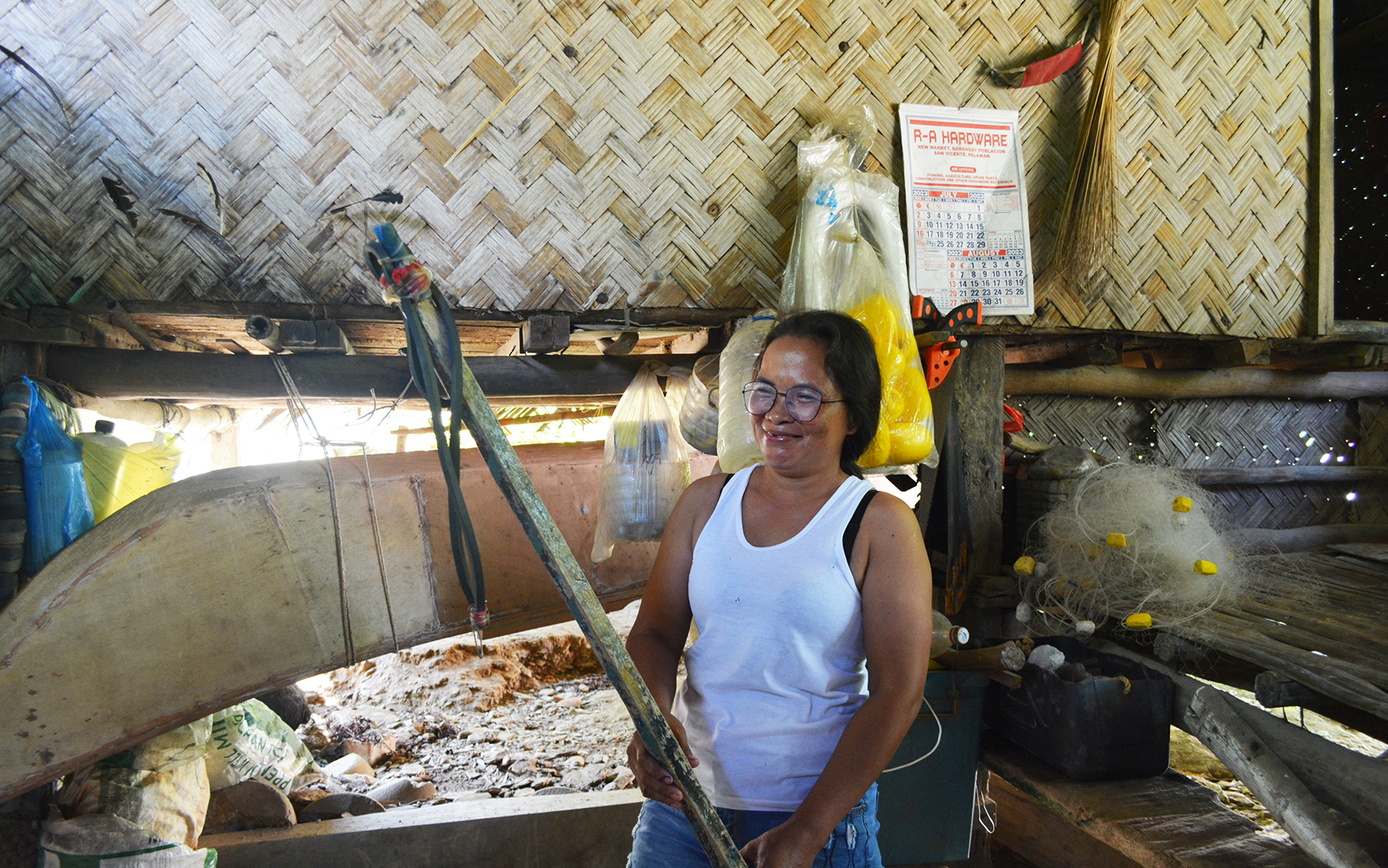She’s an expert in her field, arguably a scientist, right?
Written by Bridget Mullany
We make our way upstairs, the wooden stairs creak under my feet. At the top I brush the sand off my feet and step onto the bamboo floor. I can see our beautiful host downstairs, through the gaps in the floor, putting one of her many grandchildren to sleep.
 I slump down on my bed. It’s been a long day. We have been meeting with community members all day discussing their most prized resource, their coral reefs. We are on a tiny island 10km off mainland of Cebu, Philippines. I lay down, it’s hot, no need for a blanket, the smell of fried katambak (emperor fish) is still in the air. I close my eyes and get ready to sleep. I can hear the sea lapping at the beach only metres away from the house. I start to drift off but then I wake up to the ‘put put put’ of the bankas (boats). ‘Wow they really do head out after 10pm’ I think to myself. These pana (spearfishing) and pukot (net) fishers won’t be back until the early hours of tomorrow morning. I hear another banka start up, and another and then another. Fishing is the main livelihood on the island. Fishers are proud of their ‘way of life’ but they also concede its hard work at times and there aren’t many options for such an isolated community.
I slump down on my bed. It’s been a long day. We have been meeting with community members all day discussing their most prized resource, their coral reefs. We are on a tiny island 10km off mainland of Cebu, Philippines. I lay down, it’s hot, no need for a blanket, the smell of fried katambak (emperor fish) is still in the air. I close my eyes and get ready to sleep. I can hear the sea lapping at the beach only metres away from the house. I start to drift off but then I wake up to the ‘put put put’ of the bankas (boats). ‘Wow they really do head out after 10pm’ I think to myself. These pana (spearfishing) and pukot (net) fishers won’t be back until the early hours of tomorrow morning. I hear another banka start up, and another and then another. Fishing is the main livelihood on the island. Fishers are proud of their ‘way of life’ but they also concede its hard work at times and there aren’t many options for such an isolated community.
On one of the bankas heading out is Maria, a young mother of four children. She’s the sole income provider for her household, using the money from her daily catch to support her children’s schooling. Earlier today we were chatting and joking about the fact that she often out-fishes the men on the island and that in fact ‘she’s the better fisherman’. She targets coral reef fish; gropers, snapper, goatfish & sturgeon, and sells them to a fish dealer on the island (another woman named Beverly). She understands these fish better than I ever will. Maria knows when they breed, where they shelter, how the moon’s cycle affects their location and activity. It’s this knowledge that allows her to find them, spear them, sell them, and support her family. Maria grew up on this island. She’s been swimming in these waters since she could walk. Observing the fish, the weather and the tides. She’s an expert in her field, arguably a scientist, right?
Fishing has long been seen as a man’s job. As such, scientists and policy makers often call upon fishermen to inform their decisions when managing local fisheries. This often excludes women’s voices from the conversation. It’s women like Maria whose voice needs to be a part of the conversation. It’s women like Maria whose knowledge is built from decades of experience and can greatly contribute to effectively managing fisheries when it’s acknowledged and included.

So, on this International Day of Women and Girls in Science, I’d like to recognise and celebrate the quiet scientists like Maria. The fisherwoman who govern complex biological phenomena every day, and use their ecological knowledge to support themselves and their families. Often forgotten and unrecognised but still scientists in their own right.


